Shentonista Mothers — The Good Side
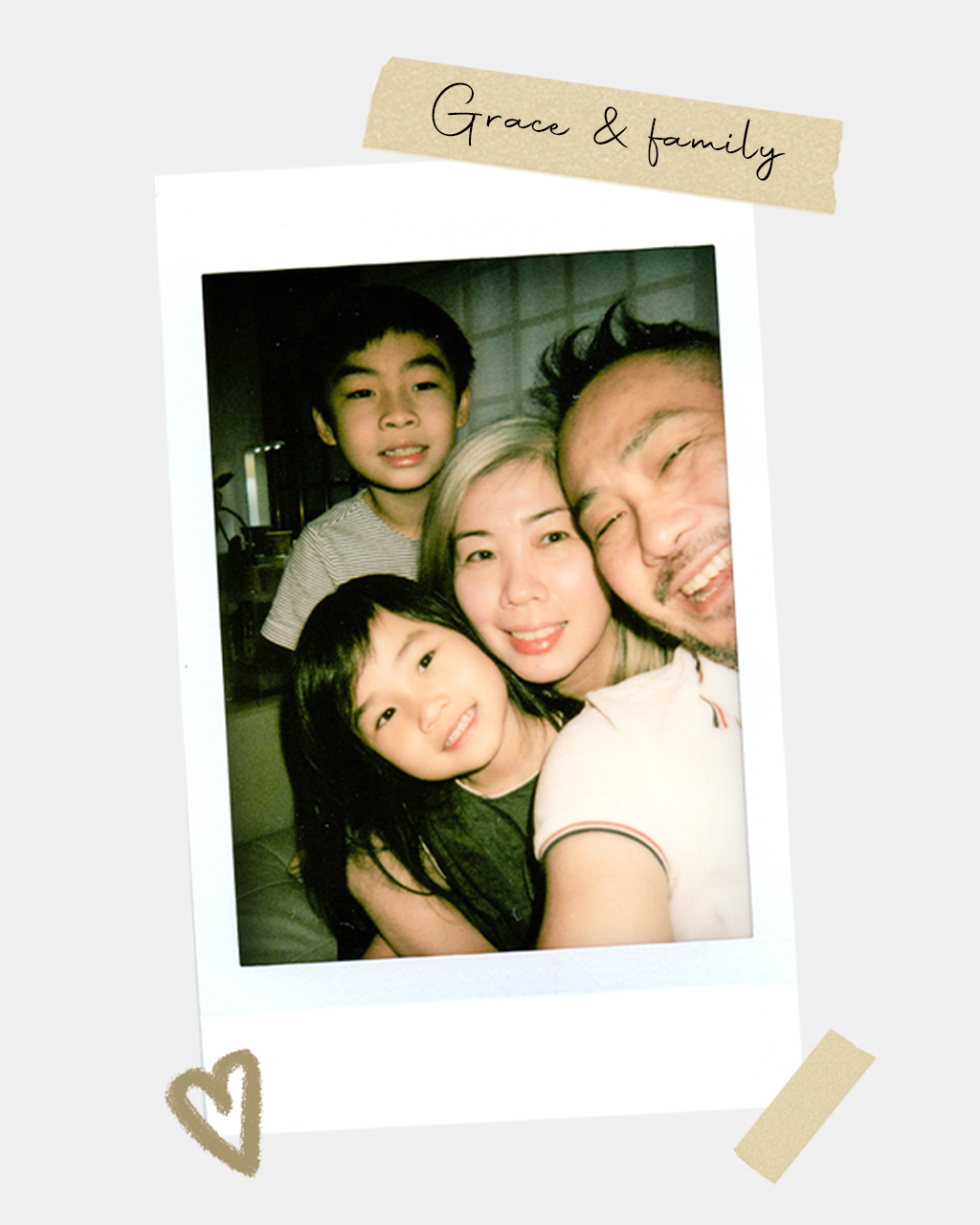
When fears and uncertainty surround us, it’s all the more important to celebrate the little things that bring us joy. This week, we’re taking the time to celebrate the people who gave us life, and teach us how to live. In the lead up to Mother’s Day, we’ll be sharing the stories of three special women, but due to the special circumstances of this time, we sent them an Instax camera to capture the highs and lows of daily life, the new struggles that have surfaced as they handle work, home, and (the dreaded) home-based learning.
Amidst a time of dark clouds and thunderstorms, it’s important to try our best to see the hidden sunlight—one piece of advice Grace finds herself stressing ever more to her family during this period. “There’s always a light at the end of the tunnel,” she reminds herself and her children, Joshua and Faith, and this is reflected in all the smiles and laughs that have been captured on film.
We’re sure it’s been a hectic time of change for you and your loved ones—how have you and your family been coping?
This arrangement isn’t as much of a shock to me, thankfully: I’ve been working from home for a while now, so that I can take care of the kids full-time. It’s always nice that Arthur, my husband, can spend more time with us.
More than the big changes, it’s just about having to adapt to all the small little changes that have been snowballing. It’s our 10th anniversary this month, so we had plans to go on a trip and have our children stay with my mother…but we all know how that worked out (laughs). Of course, in the larger picture, it’s hardly a drastic change, but it would have been a nice break for us both.
We’ve also been feeling a little cooped up—Arthur, my husband and I are both on the creative side, so it does affect our creativity when we don’t have the chance to explore outside. We’ve been trying to recreate familiar routines at home by ordering in, so it could be something as simple as having coffee from our favourite place.
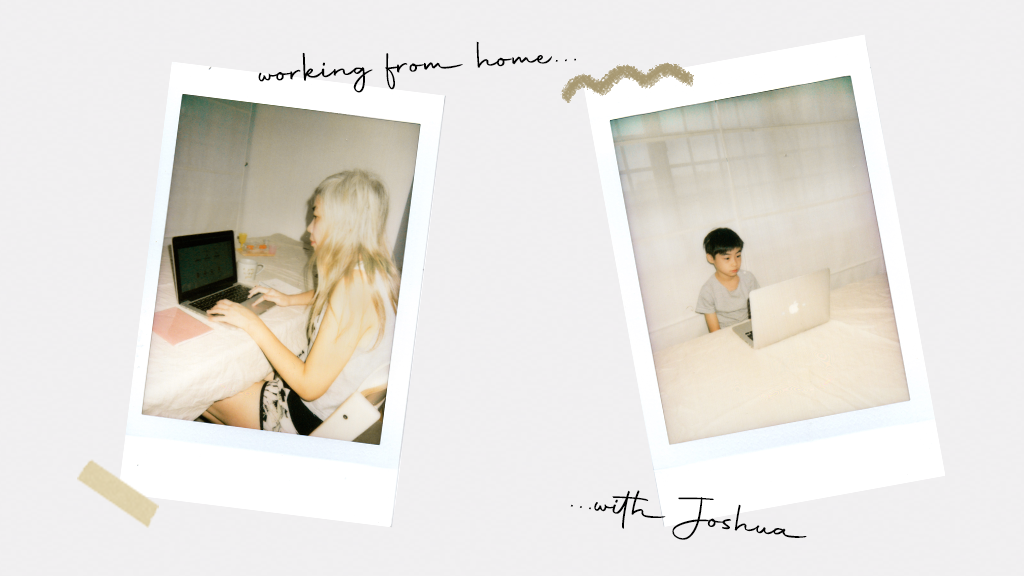
Working from home can be tough when you have to balance it out with your children’s home-based learning: how’s that balancing act been for you?
I’m not going to lie, the SLS (Student Learning Space) is causing a bit of stress for us, because there’s a timetable they need to follow for different subjects, and Joshua sometimes has to rush through the video call for one subject to another. The fun part is seeing Joshua’s attention span for each subject—he tends to zone out when it comes to Chinese (laughs).
Faith’s still in preschool, so we’ve been trying our own curriculum, where we give her more freedom to explore what she likes.
Have you faced any moments of realisation (whether in joy or horror) that you had turned into one of your own parents as well?
Very often (laughs). I think there are phases. When you’re young, you want to be like your mother. When you’re a teenager, you avoid trying to become your mother. But when you become older, you realise you are becoming your mother. You cannot escape it.
I think as parents, there can be two extremes—you either try to copy the parenting style you grew up with, or completely shun it and do the opposite. So in a way, being a parent feels like reliving your own life, and you’re given the chance to resolve certain pains and wounds that you’ve been carrying since your childhood. If we don’t heal ourselves, it carries on when you become a parent—and your children might pick up your weaknesses.
I’m also realising that I nag like my mother used to (laughs). Simple things like, “Once you’re out of the shower, don’t run around without your clothes.” Like I said, it’s hard to escape.
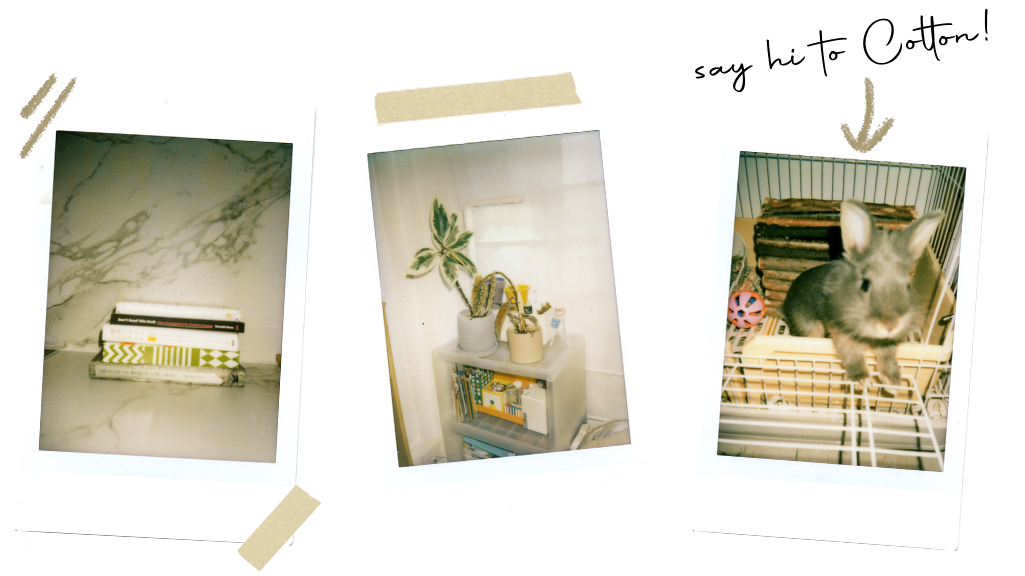
How has your mother shaped your approach to parenting?
My mother is very unconditional—she made a lot of sacrifices to raise us to where we are at this point, and I’ve watched her let go of her own desires for the family’s sake. There are a lot of quiet and unseen things she has done for us. She’s very gentle, and I think I’m much rougher than her, but the feeling of coming back home to warm food and someone waiting for you has stayed with me, and this probably played a part in my decision to stay home to care for my kids too.

Do you remember some of the fears you had when you first became a parent?
I’ve always been fearful of my weakness being projected onto my children. The weaknesses can be both physical and emotional—I have naturally grey hair and I’m always fearful my kids might end up with it. There are deeper fears too, but we’re learning to work on it, a day at a time.
Tell us a little more about your children—what’s something unique about each of them?
Joshua is dyslexic, so the way he thinks is very different. We always remind him that it’s not a handicap, and that it gives him a chance to think from a different perspective. He’s also obsessed with plants—it’s been that way since 15 months old. He’s still very passionate about them; he’s tells me about the different types of palm trees there are, and how he wants to be botanist when he grows up.
Just like me, he also has Ordinal Linguistic Personification—we both assign genders to numbers. Something different about him is that he sees numbers and words as colours also, so his mind is a very lively place.
Faith is also really creative, and her motor skills are excellent. She’s a more tactile person: she likes to build things and prefers hands-on activities. She’s also quite linguistically inclined: she started speaking very early—her first word was “star”. It was so fascinating, even though I had been hoping her first word would be Mama (laughs).
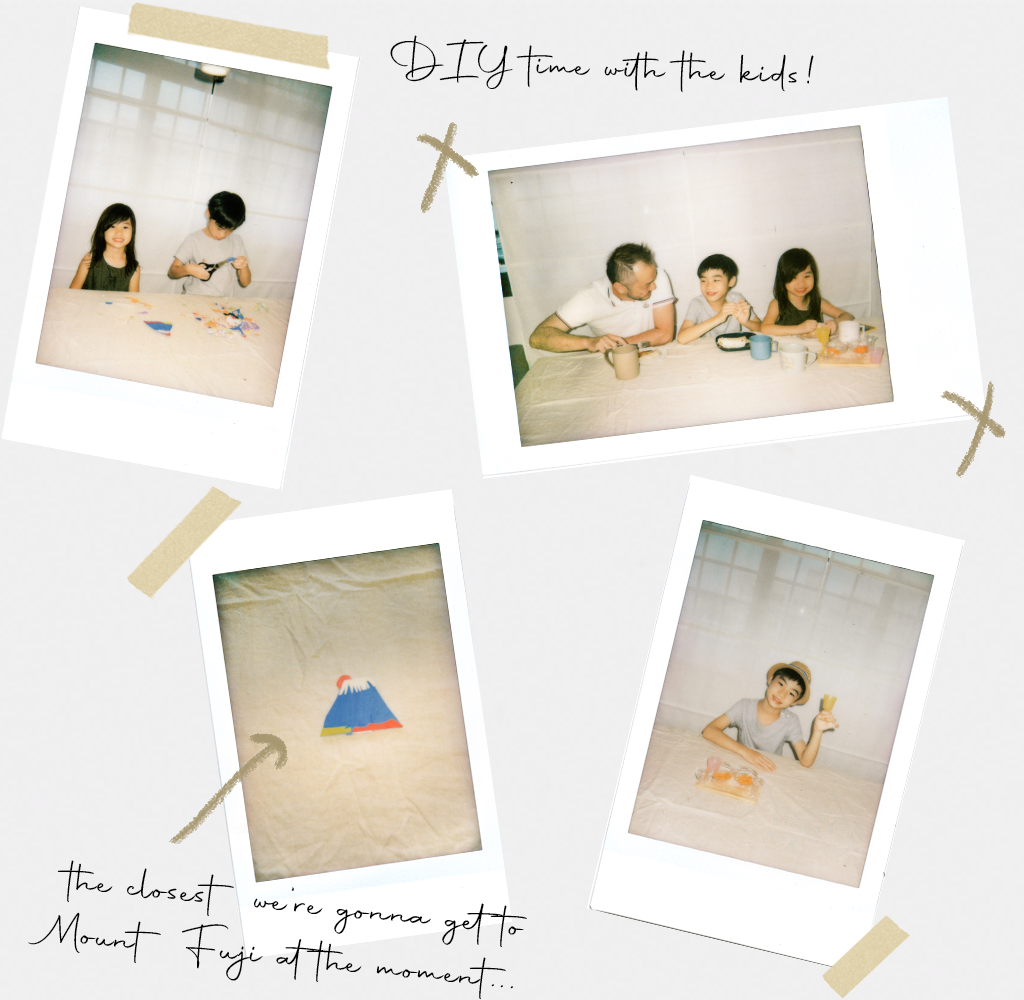
We noticed your family loves to do things creatively—how do you encourage this side of your children?
The kids are both naturally creative, and they draw really well too—there are times when we’ve mistaken Faith’s drawings for her father’s. They’re mature in their thinking, so our activities are quite self-directed.
Joshua was the one who created the Mt. Fuji collage—we’ve never been there, so it was surprising when we saw it. You know how, as creatives, you become so used to looking for metaphors that we took it as a glimpse of hope, and a sign that the sun will keep rising.
Usually, after they’ve finished their project, we like to talk about their concept and process. We never limit what they want to explore, but sometimes we’ll talk about where their inspiration comes from. It keeps the adults engaged too (laughs).
As your children grow, what’s something you hope they learn from watching you?
Something we make a diligent habit of is apologising when we’re wrong, so that the kids know our relationship is open. It’s important for them to know that even as parents, we can be wrong, but we’re all willing to work on it.
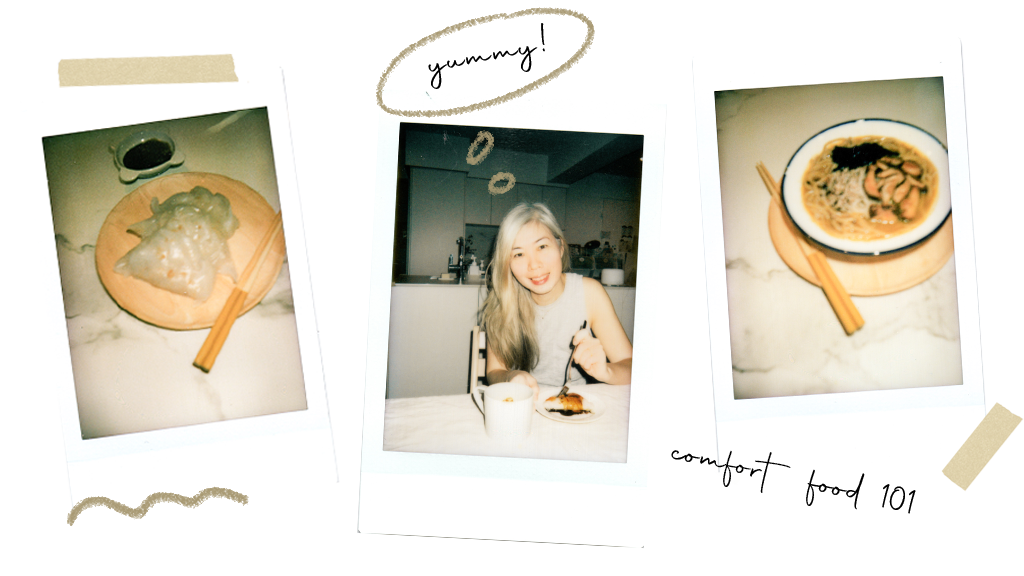
How do your kids show that they love you?
I’m lucky that Joshua and Faith are both so expressive—they always write me love letters, on a daily basis, and Faith constantly asks me how to spell “Love Mama” (laughs). They write letters when they have a complaint as well—sometimes, I get letters that say “Mama, I love you, but please don’t scold me next time.”
What would you like to tell a new parent embarking on their own journey?
You can read all the parenting books you want, but you have to be prepared to accept that you will not be the perfect parent. Every child is different, so you don’t have to follow what others have done. It’s okay to cut yourself some slack.
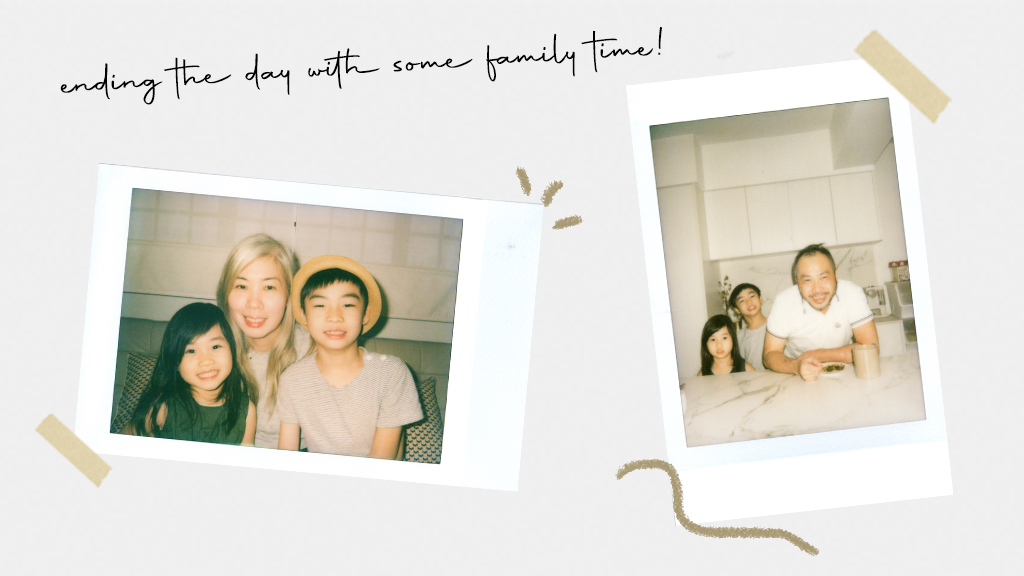
Advice that you’d like your children to take with them through life:
We’re a Christian family, so I always remind them to love God, love people, and love your family. If they can practice these three things, I know they’ll grow up to be good people.
Keep a look out for our finale feature on Sunday, where we hear more about Grace from a different perspective—from her eight-year old son Joshua, and five-year old daughter Faith.
Like this? Share it.
What others are saying
There are no comments yet.
Leave a Reply